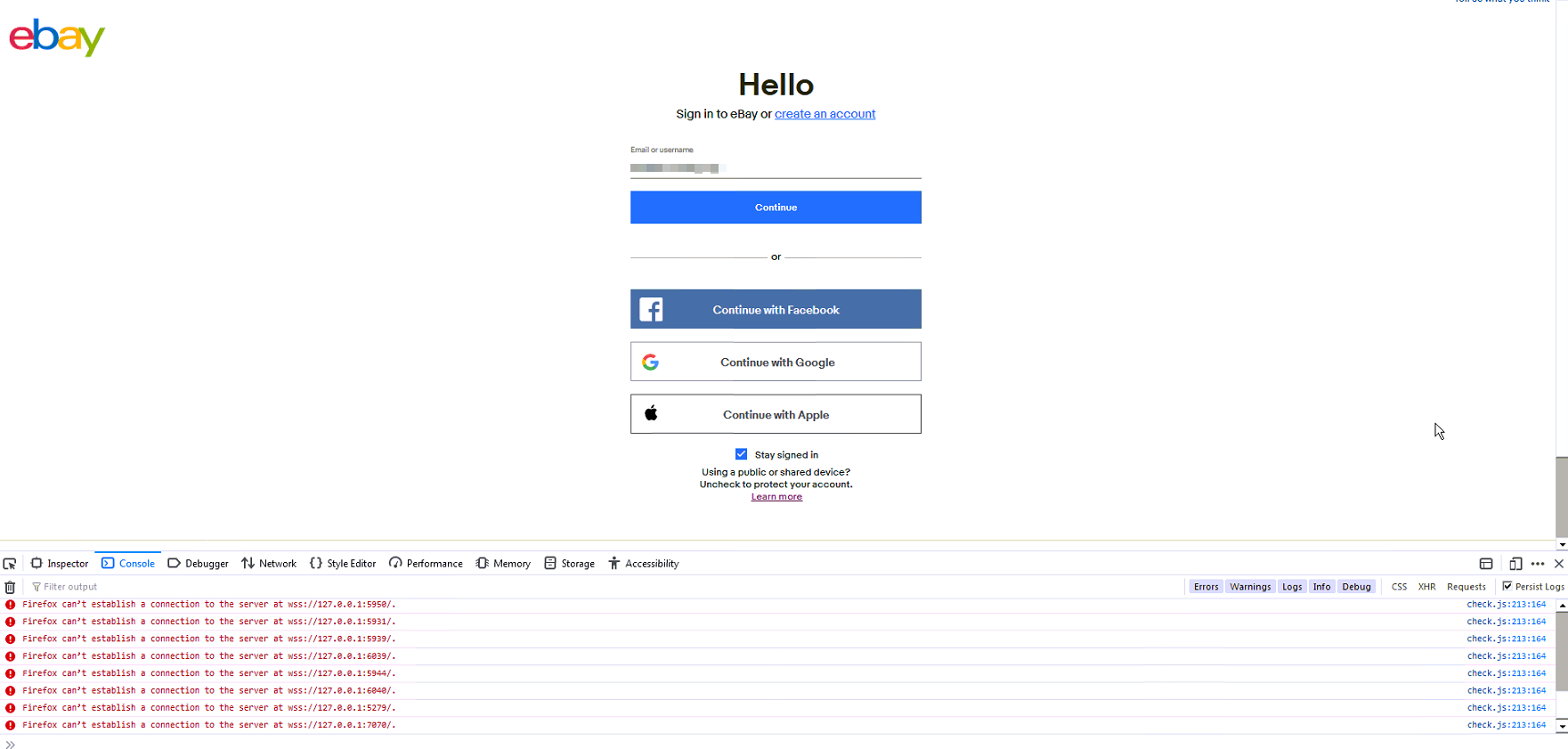In helping a corporate user log on to eBay, I noticed that when on the login page, a stream of errors were coming up in the Firefox JS Console about not being able to connect to wss://localhost. This is a bit concerning, obviously. Why would a web site need to connect to a web server running locally.
In looking further, I found that this request comes from check.js at this URL:
https://src.ebay-us.com/fp/check.js?org_id=usllpic0&session_id=586308251720aad9263fb1e7fffd7373
Is this some malicious script injected into eBay or do they have a legitimate reason for doing that? Anybody knows?


network.websocket.max-connectionsto zero